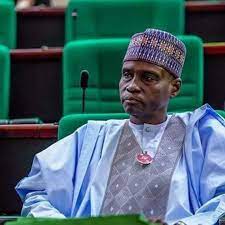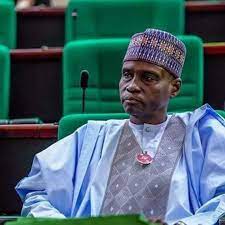
The Chairman of the Senate Committee on Judiciary, Human Rights and Legal Matters, Senator Mohammed Monguno, has decried the continued harassment, intimidation, and violence inflicted on journalists for simply doing their jobs, stressing that a free and vibrant media is indispensable to a healthy democracy.
Speaking at a “Stakeholders’ Dialogue on the State of Human Rights in Nigeria”, organized by the Abuja-based non-governmental organization, Policy and Legal Advocacy Centre (PLAC), in collaboration with the Senate Committee on Judiciary, Human Rights and Legal Matters and the House of Representatives Committee on Human Rights, and sponsored by National Endowment for Democracy (NED), Senator Monguno described the protection of freedom of expression and the press as one of the most pressing issues that must be addressed in Nigeria.
Noting that a free and vibrant media is indispensable to a healthy democracy, he lamented that “yet journalists and media workers in Nigeria continue to face harassment, intimidation, and even violence for simply doing their jobs.”
Senator Monguno, a lawyer and first-term senator representing Borno North Senatorial District in the 10th Assembly, stressed that “we must reaffirm our commitment to press freedom and ensure that journalists can work without fear of reprisal.”
According to him, “The promotion and protection of human rights is an essential aspect of democracy. The issues we are confronting in the area of human rights are not merely matters of policy or politics; they strike at the very core of our humanity and our commitment to justice and dignity for all.”
Senator Monguno noted that Nigeria, like many countries around the world, faces significant challenges in upholding human rights, citing “concerns surrounding freedom of expression and assembly to issues of gender equality, access to education, healthcare, and the protection of vulnerable populations.”
He described the task before the country as “daunting but absolutely essential.”
Senator Monguno said while there have been commendable efforts by the government and civil society to advance human rights, including the ratification of international treaties and the establishment of institutions to protect human rights, there remained persistent and troubling patterns of violations that demand urgent attention.
He called on the country to “confront the scourge of impunity for human rights abuses”, remarking that “Too often, perpetrators of human rights violations go unpunished, perpetuating a cycle of injustice and undermining the rule of law.”
Senator Monguno highlighted the need to strengthen the country’s legal frameworks, enhance accountability mechanisms, and empower the Judiciary to hold accountable those who violate the rights of others.
He said: “Additionally, we cannot ignore the plight of marginalized and vulnerable communities, including women, children, persons with disabilities, and internally displaced persons. These populations often face systemic discrimination. It is incumbent upon us to prioritise their rights and ensure that they are not left behind in our pursuit of progress.”
Senator Monguno insisted that legislators, policy makers, activists, and concerned citizens have a collective responsibility to uphold and defend human rights in Nigeria, adding that the dialogue presented an invaluable opportunity “for us to come together, exchange ideas, and chart a path forward toward a more just, equitable, and rights-respecting society.”
He called on stakeholders to “seize this moment to reaffirm our commitment to human rights, to hold ourselves and our leaders accountable, and to work tirelessly towards a Nigeria where the inherent dignity and worth of every individual are fully recognized and respected.”
Senator Munguno, was the majority chief Whip of the House of Representatives in the 9th National Assembly, having been elected to the House in 2007 under the platform of the All Progressive Congress (APC) and having served as a member of the House in the 6th, 7th, and 8th National Assembly.
Before his election to the National Assembly, he had served as Attorney-General and Commissioner for Justice in Borno State between 2003 and 2005; as Commissioner for Education from 2005 to 2006; and as Commissioner for Water Resources from 2006 to 2007.






